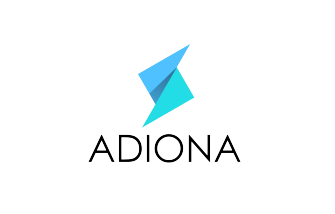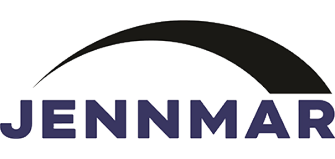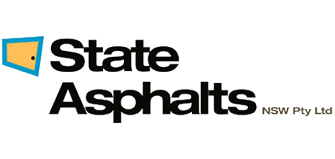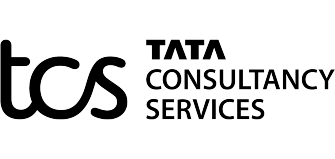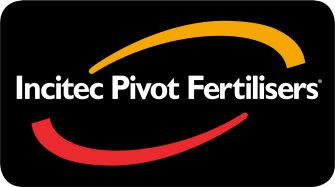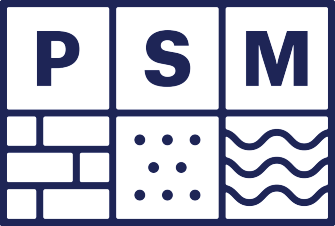Why pursue a research degree with industry?
Ask better questions.
Refine your ideas.
Find the best solution for society.
UNSW Engineers are self-starters by nature and reputation, driving new paradigms in areas such as energy resources, medicine and AI. With the adoption of powerful learning tools such as short courses and generative AI study-buddies, research skills have never been so valuable.
That's why the AGSE is pioneering a new mode of experiential learning to bridge the gap between research and industry, to open new doors to impact. Individuals who wish to advance their skills through our PhD or Master’s will equip themselves with the discipline and capacity to collaborate with industry and turn original ideas into action.
Open your critical eye to the world
Embarking on a research degree is fundamentally different to any other degree. As an engineering researcher, you are on a single-minded mission to shift the boundaries of science and technology, and their application in society. Simultaneously, this gives you a platform to deep-dive into your own natural curiosity by holding a magnifying glass up to the world around you.
Our Industry engaged PhD and Master’s degrees are designed for the mission-led learner, to streamline their journey from research to impact. Students work alongside industry and research end-users to inform their theoretical inquiry, bringing a fresh perspective to sector-specific goals and barriers. As the eyes of industry, your mission is simple: to shine a light on society's biggest blindspots, ensuring nothing gets lost in translation.
Ideally suited to recent graduates or seasoned professionals, this program allows you to gain industry experience during your studies, providing a potential pathway to employment upon graduation.
For industry, you get to be involved in research at the forefront of your field, providing opportunities to transform your business and develop potential future employees.
"These PhD students are highly skilled people so we gain access to their academic expertise. They really help us to innovate...We're proud to invest in them."
- Dr Lidija Kotula, Weet-Bix Scientist at Sanitarium Health Foods
Beyond the library or laboratory, research is an active force in every major life decision. Whether it be choosing a degree, conducting a risk assessment for a new product, finding cost-efficiencies in a supply chain, or raising a child; we are constantly learning to sharpen our judgement.
By undertaking a research degree at the AGSE, you'll cultivate timeless and transferrable skills, making you a valuable employee capable of:
- Innovation: Make a significant and original contribution to your field of study
- Planning: Develop time and project management skills to optimise research tasks with guidance from experienced supervisors
- Critical thinking: Objectively analyse complex information and apply methods to solve complex problems in a professional, ethically aware manner
- Communication: Express your ideas effectively to diverse stakeholders
- Endurance: Iterate, refine, and adapt until the answer finds you
- Collaboration: Work in teams of multi-disciplinary engineering specialists with divergent perspectives
- Translation: Convert designs into working prototypes for industry
Flexible research opportunities tailored to you
-
Completing a PhD within the AGSE Industry PhD program includes:
- Meeting all the requirements for the PhD degree in Engineering in a minimum of 3 years full-time equivalent (FTE)
- Enrolment in one of our 8 Engineering Schools under the guidance of an academic supervisor.
- A minimum of 60 days industry engagement related to the project
- A tailored professional development program
- Industry, academic, and peer networking and mentoring
- Transcript recognition of the program participation
- Whether you are a recent university graduate or an experienced industry professional, the flexible program models will suit your needs:
Students enter our programs at different life and career stages. We recognise that everyone’s situation is unique, so we created three flexible models of engagement:
 Industry engaged
Industry engaged Industry sponsored
Industry sponsored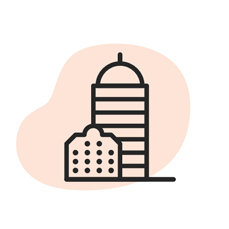 Industry employed
Industry employedReceive a university scholarship to work on a project with engagement from an external organisation.
Receive an industry sponsored scholarship to work on a co-designed project.
Undertake a project integrated with employment with an external organisation.
Scholarship
Competitively awarded scholarship starting at the UNSW RTP rate for a maximum of 3.5 years full-time: Domestic or International.
Competitively awarded scholarship starting at the UNSW RTP rate for a maximum of 4 years full-time: Domestic or International.
Not applicable.
Tuition fees
For domestic candidates, tuition fees are offset (i.e. no tuition fees apply).
For international candidates, apply for a tuition fee scholarship (maximum of 3.5 years FTE) or visit HDR Fees and Costs for details.
Industry support
Cash
Optional:
- top-up scholarship
- paid internship
- research support (e.g. consumables)
Optional:
- research support (e.g. consumables)
Employee's salary
In-kind
Optional:
- supervision
- research support (e.g. consumables, infrastructure and expertise access)
-
Completing a Master of Industrial Research (MIR) within the AGSE includes:
- Meeting all the requirements for the Master of Industrial Research degree in a minimum of 1.5 years full-time equivalent (FTE)
- Enrolment in one of our 8 Engineering School under the guidance of an academic supervisor.
- A supervisor based in industry
- Industry, academic, and peer networking and mentoring
Whether you are a recent university graduate or an experienced industry professional, the flexible program models will suit your needs:
Students enter our programs at different life and career stages. We recognise that everyone’s situation is unique, so we created three flexible models of engagement:
 Industry engaged
Industry engaged Industry sponsored
Industry sponsored Industry employed
Industry employedReceive a university scholarship to work on a project with engagement from an external organisation.
Receive an industry sponsored scholarship to work on a co-designed project.
Undertake a project integrated with employment with an external organisation.
Scholarship
Competitively awarded scholarship starting at the UNSW RTP rate for a maximum of 2 years full-time: Domestic or International.
Competitively awarded scholarship starting at the UNSW RTP rate for a maximum of 2 years full-time: Domestic or International.
Not applicable.
Tuition fees
For domestic candidates, tuition fees are offset (i.e. no tuition fees apply).
For international candidates, apply for a tuition fee scholarship (maximum of 2 years FTE) or visit HDR Fees and Costs for details.
Industry support
Cash
Optional:
- top-up scholarship
- paid internship
- research support (e.g. consumables)
Optional:
- research support (e.g. consumables)
Employee's salary
In-kind
Optional:
- supervision
- research support (e.g. consumables, infrastructure and expertise access)
-
Completing a Master of Philosophy (Engineering Entrepreneurship) within the AGSE includes:
- Meeting all the requirements for the Master of Philosophy degree in a minimum of 1.5 years full-time equivalent (FTE)
- Enrolment in one of our 8 Engineering School under the guidance of an academic supervisor.
- Access to UNSW research infrastructure and expertise for testing a technology-based business idea
- Coursework in Research Skills, Entrepreneurship, and Business
- Industry, academic, and peer networking and mentoring
Scholarship
Competitively awarded scholarship starting at the UNSW RTP rate for a maximum of 2 years full-time: Domestic or International.
Tuition fees
For domestic candidates, tuition fees are offset (i.e. no tuition fees apply).
For international candidates, apply for a tuition fee scholarship (maximum of 2 years FTE) or visit HDR Fees and Costs for details.
Funding opportunities
AGSE’s industry engaged degree programs offer additional competitive funding opportunities, such as the LEAP Industry PhD Scholarship and the HDR Industry Engagement Reporting Grant. Applicants to the MPhil (Engineering Entrepreneurship) can apply for the LEAP Entrepreneurship Grant when submitting their Expression of Interest. For information on the above opportunities, see Engineering Postgraduate Research Scholarships.
Where do I start?
- Review the Application guide for how to apply for a research degree at UNSW Engineering. Please note that applicants to the Master of Philosophy (Engineering Entrepreneurship) will need to submit an Expression of Interest before being invited to submit a formal application.
- Submit your formal application via UNSW Apply Online and identify yourself as an industry-engaged applicant.
- Once you have accepted your admission offer, you will be considered for the AGSE Industry PhD Program.
- Accept the invitation and join our cohort of fearless thinkers!
A word from our founding Director
Deciding to pursue a research degree is a daunting prospect for anyone. Like most, my PhD had highs and lows, but it taught me to always look at the world from different angles, take initiative and look for opportunities outside my comfort zone. Within 6 months, I was on a plane to Germany!
Megan Lord
Professor at the School of Biomedical Engineering and founding Academic Director of AGSE Industry PhD Program
If you're curious but unsure if research is the right path for you, here are a few personal tips:
- Ask yourself what a research degree achieves for you, establishing a clear goal to help guide you throughout your academic journey, both personally and professionally.
- Find a topic, problem or question that you are passionate about spending at least a few years investigating.
- Find a supervisor who you can trust and confide in during the highs and lows of the project.
- Make the most of this time by networking with other students, academics and industry contacts related to your project and beyond to prepare yourself for life after your PhD!
Our Industry Partners include
We work with a diverse mix of sectors including energy, water, food, IT, medicine, and space to bring a fresh lens to stubborn problems along their engineering value chains. Our program connects different generations of leaders to grapple, grasp and overcome these challenges, to unlock their deepest-held values, and bring their vision for humanity to life.
